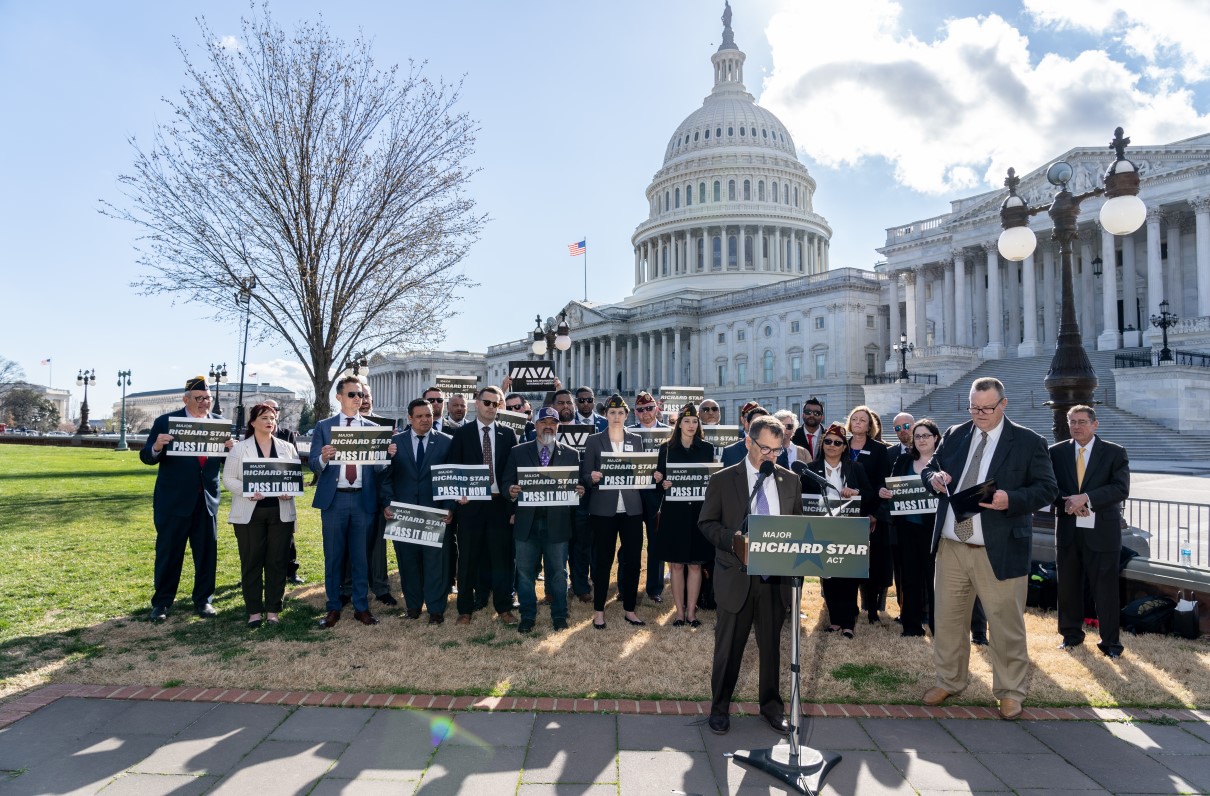The Major Richard Star Act, a bill which would benefit tens of thousands of combat-injured veterans by eliminating an unfair pay offset, has reached a critical level of support in the House of Representatives just five months into the 118th Congress.
The MOAA-backed legislation recently cleared the 290 co-sponsor threshold for entry on the House’s Consensus Calendar. Most lawmakers who supported the legislation in the 117th Congress have signed back on, giving hope for progress on the larger concurrent receipt problem.
[TAKE ACTION: Urge Your Legislators to Support Concurrent Receipt]
Over two-thirds of the 117th Congress supported the Star Act, with 336 co-sponsors in the House and 67 in the Senate. The bill cleared the Consensus Calendar milestone in August 2022, but support came too late in the session. This year, there is still time to influence the National Defense Authorization Act (NDAA).
The co-sponsor count for H.R. 1282/S. 344 is up to 294 in the House and 63 in the Senate. As of May 2, there were still roughly 30 representatives and 11 senators who co-sponsored the bill last session and have not signed on this year.
The goal is to continue to grow support for this legislation and have it included in the NDAA. Continued pressure from constituents is necessary to ensure lawmakers caught up in budget negotiations do not forget about our combat-injured veterans, especially as we approach the 50th anniversary of the all-volunteer force and face a recruiting crisis.
[TAKE ACTION: Ask Your Lawmakers to Support the All-Volunteer Force]
Keep up the pressure: Encourage your friends and others in your network to call their legislators’ offices via MOAA’s Capitol Hotline – 866-272-MOAA (6622), a toll-free line to the U.S. Capitol switchboard – and request an appointment with their military legislative assistant or legislative director.
Star Act Talking Points
Stress these details about the Star Act when asking your lawmakers or their staff members to co-sponsor H.R. 1282 or S. 344:
- Two Different Pays, Two Different Purposes: Retired pay is paid by DoD for completed years of service. Disability compensation is paid by the VA. Using one to offset the other is an injustice to those who’ve served, even more so to those injured in combat.
- Proven Support: This legislation had two-thirds of Congress on board last year and likely will surpass that number this session. We need to act now before we run out of time.
- The Wrong Message: The purpose of the offset is to save the government money. Achieving such savings on the backs of combat-injured veterans is the wrong approach, especially as services struggle to fill their ranks. What message does this send to potential future servicemembers?
Advocacy for the Star Act has grown across a coalition of military and veteran service organizations (MSO/VSOs). MOAA has played a key leadership role in The Military Coalition’s Star Act working group, which has continued to engage House and Senate offices throughout the year via in-person meetings and social media campaigns. At one recent coalition visit, a senator’s military legislative assistant acknowledged:
“No other piece of legislation has jammed up my inbox more than the Major Richard Star Act, and I think the Senator will sign back on.”
Keeping up the pressure on your lawmakers is making an impact. Grassroots advocacy works.
Read more about the Major Richard Star Act and work from the coalition at this link, and reach out to your lawmaker today.

